Table of Contents
Welcome to our deep dive into the dynamic growth and innovation of the Indian tile industry. India has a rich history in ceramics, dating back to the Indus Valley Civilization, and today the country is a leading player in the global tile market.
The tile industry in India is known for its high-quality products, innovative designs, and sustainable practices. With a booming construction sector and increasing demand for tiles in residential and commercial buildings, the Indian tile market is projected to grow at a significant rate in the coming years.
In this section, we will explore the latest trends and developments in the Indian tile industry, including the production and manufacturing of tiles in India, the evolution of Indian ceramic tiles, key players and their contributions to the industry, and future prospects for the Indian tile market. Join us as we delve into this exciting and rapidly evolving industry.
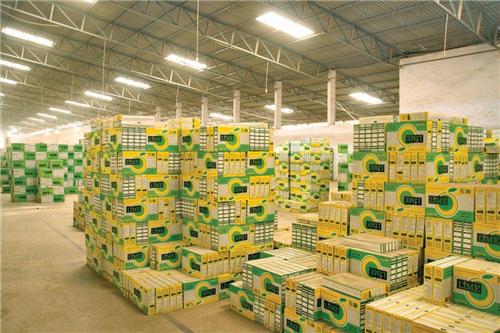
Overview of the Indian Tile Market

India is the world’s third-largest producer of tiles, with an estimated annual production of 2,900 million square meters. The Indian Tile Industry has grown significantly in recent years, with a CAGR of 9.1% between 2016 and 2021. India’s tile exports have also increased, with the country being one of the largest exporters of tiles in the world.
The Indian tile industry comprises a mix of small, medium and large companies, with the top 10 players accounting for approximately 50% of the market share. The industry has witnessed a surge in investments, with a growing number of companies investing in advanced tile manufacturing technology to enhance their product offerings.
Tile Production in India
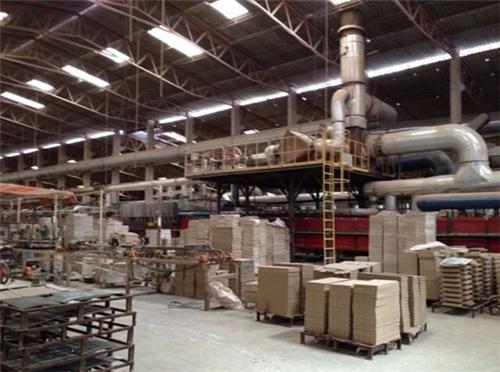
The Indian tile market comprises both organized and unorganized sectors. Organized players dominate the market, accounting for about 70% of tile production in India. These players operate modern tile plants with sophisticated state-of-the-art technology, producing high-quality tiles. The unorganized sector, on the other hand, is fragmented and comprises small and medium players who operate traditional tile plants with limited automation.
Indian Tile Exports
| Year | Value of Tile Exports from India (USD Million) | % Change from Previous Year |
|---|---|---|
| 2016-17 | 825.57 | 4.8% |
| 2017-18 | 917.39 | 11.1% |
| 2018-19 | 1,023.96 | 11.6% |
| 2019-20 | 872.17 | -14.8% |
Indian tile exports have been on a growth trajectory, increasing at a CAGR of 14% between 2016-17 and 2018-19. However, the COVID-19 pandemic and the subsequent lockdowns led to a sharp decline in exports in 2019-20. Nevertheless, the industry has shown resilience, with exports bouncing back in 2020-21.
Indian Tile Companies
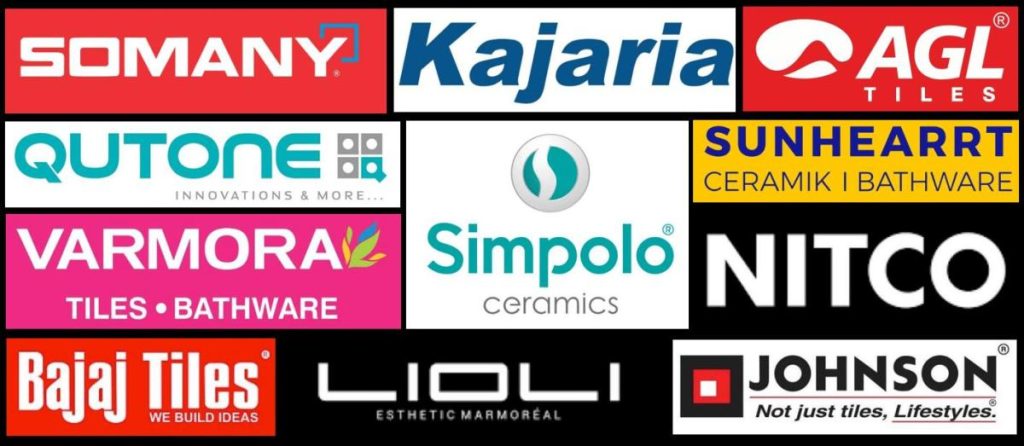
- Kajaria Ceramics – The largest tile manufacturer in India, with a market share of around 10%. The company has six plants in India and a total production capacity of 73 million square meters.
- Somany Ceramics – The second-largest tile manufacturer in India, with a market share of around 7%. The company has eight plants in India with a production capacity of 59 million square meters.
- Nitco Tiles – A leading tile manufacturer with a market share of around 4%. The company operates three plants in India with a total production capacity of 21 million square meters.
Tile Industry Trends in India
“The Indian tile industry is witnessing a shift towards digitalization, with a growing focus on e-commerce and online sales. The industry is also exploring newer materials and designs, with the aim of enhancing product quality and sustainability.” – Industry Expert
The Indian Tile Industry is moving towards innovative designs and concepts, with companies investing in research and development to bring new products to market. The industry is also adopting sustainable practices, such as the use of recycled materials and energy-efficient production techniques, to reduce its carbon footprint.
The Evolution of Indian Ceramic Tiles

Ceramic tiles have been a popular choice for flooring and wall coverings in India for decades. Today, the Indian tile industry has evolved to offer a variety of tile types to meet the diverse needs of consumers. From durable porcelain tiles to stunning vitrified tiles, there is a tile available for every space.
Ceramic Tiles
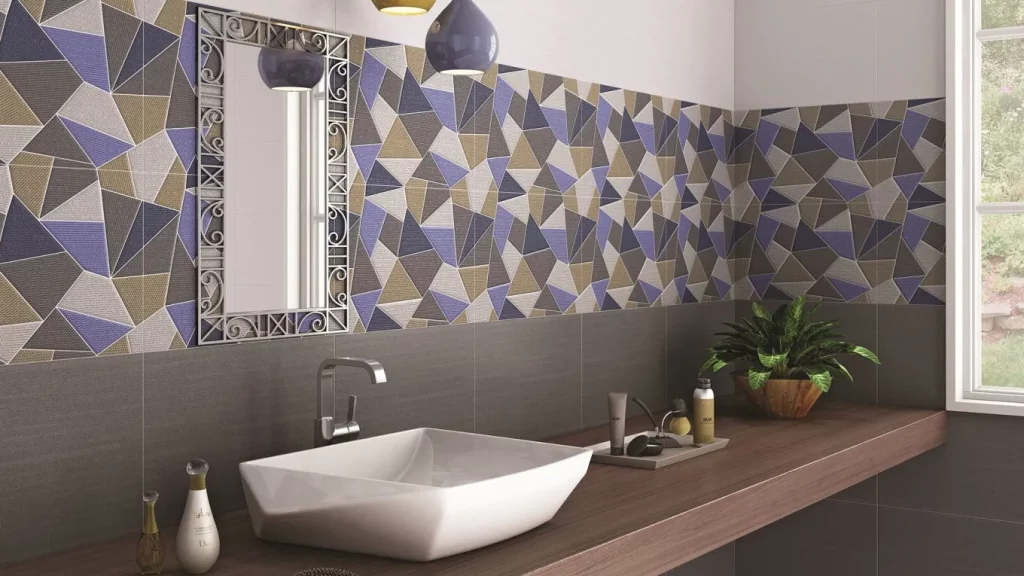
Ceramic tiles are made from a mixture of clay, sand, and other natural materials. They are then fired at high temperatures to create a hard, durable tile. Ceramic tiles are available in a range of sizes, colours, and patterns, making them a versatile choice for any space. They are a cost-effective option for flooring and wall coverings.
Vitrified Tiles

Vitrified tiles are made by fusing clay and silica at high temperatures. They are denser than ceramic tiles and have a low porosity, making them resistant to water and stains. Vitrified tiles are known for their durability, which makes them an ideal choice for high-traffic areas.
Porcelain Tiles
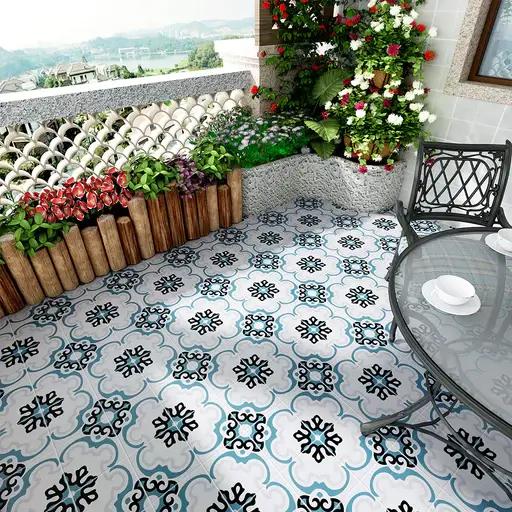
Porcelain tiles are made from a mixture of porcelain clay and other materials and are fired at extremely high temperatures. They are highly resistant to water and stains, making them ideal for use in bathrooms and kitchens. Porcelain tiles are also available in a range of sizes and colours, and can be used for both flooring and wall coverings.
Floor Tiles and Wall Tiles

While most tiles can be used for both flooring and wall coverings, some are specifically designed for one purpose. Floor tiles are typically thicker and more durable than wall tiles, and are engineered to withstand heavy foot traffic. Wall tiles, on the other hand, are often lighter and thinner, making them easier to install on vertical surfaces. Both floor tiles and wall tiles are available in ceramic, vitrified, and porcelain options.
Key Players in the Indian Tile Industry

The Indian Tile Industry is a rapidly growing sector, with various players contributing to its development and innovation. Here, we will discuss some of the key tile manufacturers, exporters, and suppliers in India.
Leading Tile Manufacturers
The Indian tile manufacturing industry is dominated by several large companies, including:
| Company Name | Tile Production Capacity |
|---|---|
| Kajaria Ceramics | 68 million sqm per annum |
| Somany Ceramics | 60 million sqm per annum |
| Nitco Tiles | 13 million sqm per annum |
These companies have a significant market share due to their large production capacities and extensive distribution networks. They also invest heavily in research and development to continuously improve their tile designs and manufacturing processes, ensuring that they remain competitive within the industry.
Tile Exporters
The Indian Tile Industry also has a strong presence in the export market, with several companies exporting their products to various countries worldwide. Some of the top Indian tile exporters include:
- Asian Granito India Limited
- Orient Bell
- Simpolo Vitrified Pvt Ltd
- Swastik Tiles Pvt Ltd
These companies have a reputation for producing high-quality tiles that meet international standards. They export a wide range of tiles, including wall tiles, floor tiles, and vitrified tiles, among others.
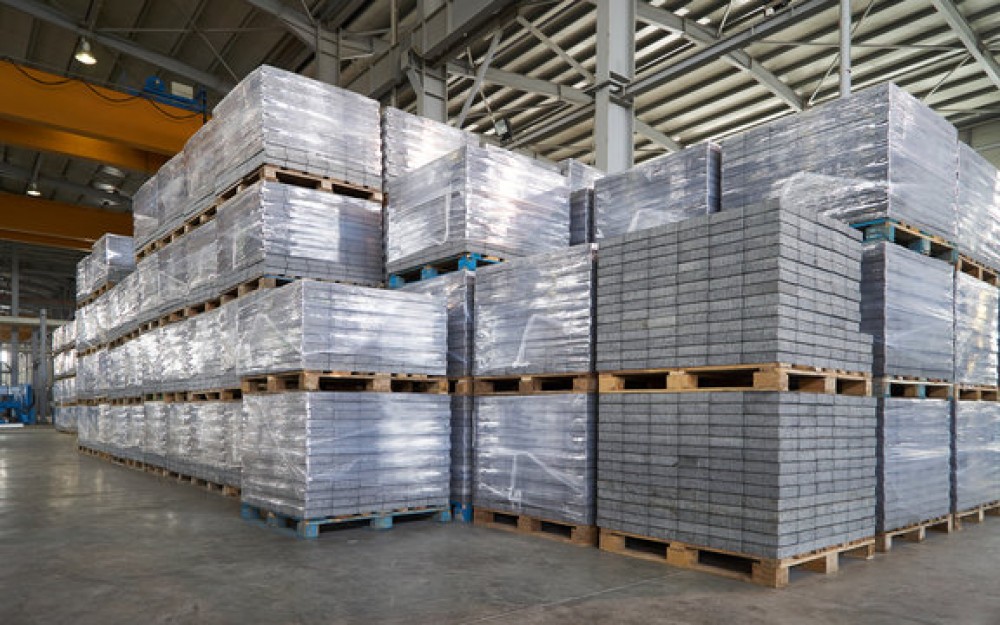
Tile Suppliers
The Indian Tile Industry also boasts several tile suppliers, who provide raw materials, machinery, and equipment to manufacturers. Some of the major tile suppliers in India include:
- Ceramic India
- Asian Tiles
- Nilofer International
- Building and Interiors
Tile suppliers play a crucial role in the industry, as they ensure that manufacturers have access to high-quality raw materials and the latest technology, enabling them to produce innovative and high-quality tiles.
“The Indian Tile Industry is fast-paced and highly competitive, with several key players driving its growth and development. These companies have a reputation for producing high-quality tiles that meet both local and international standards, making them important players in the global tile market.”
Innovations and Technological Advancements in Indian Tile Manufacturing
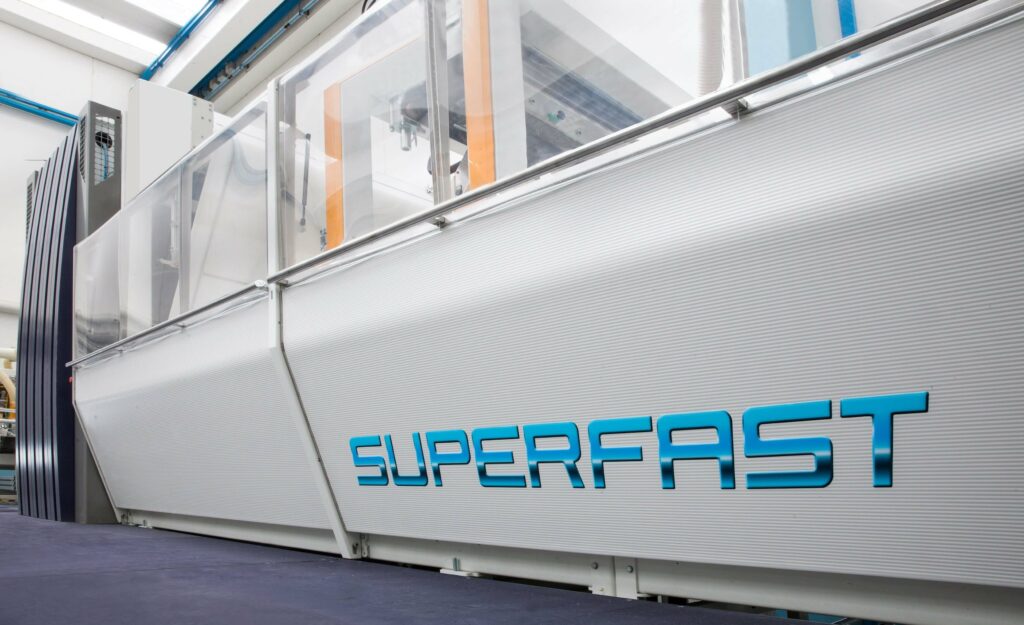
The Indian tile industry has witnessed remarkable progress over the years, thanks to rapid technological advancements and innovations in tile designs and production. Indian tile manufacturers have been at the forefront of this change, leveraging cutting-edge technologies to create stunning tile designs and enhance production efficiency.
Tile Designs
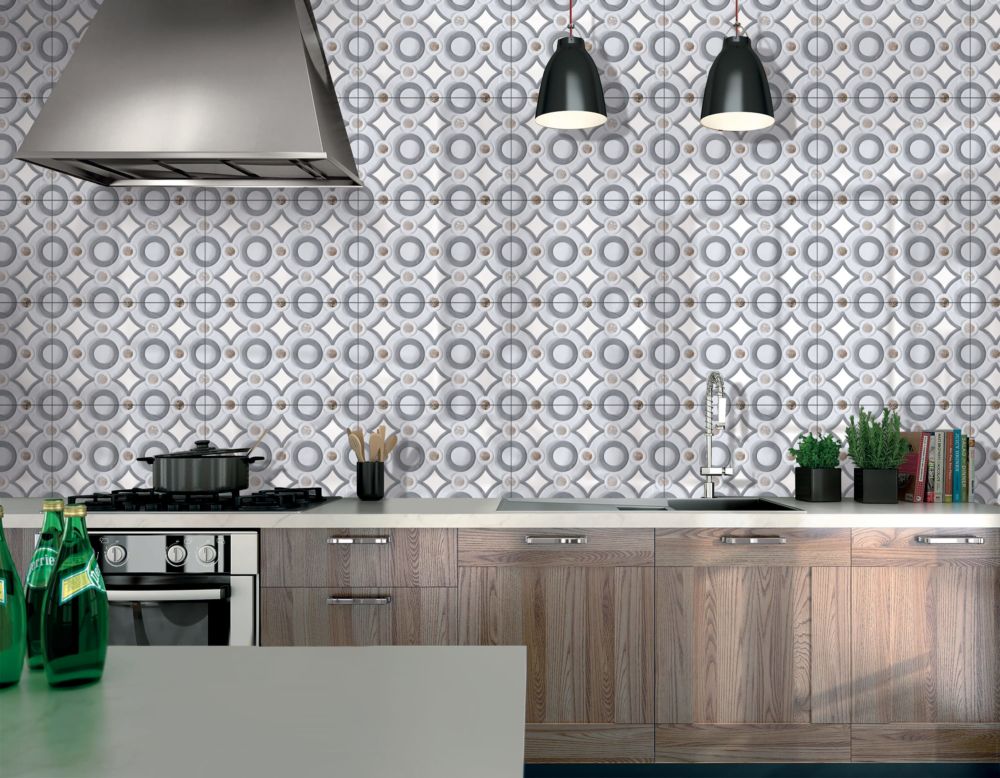
One area that Indian tile manufacturers have excelled in is tile design. With a keen focus on meeting customer demands, manufacturers have come up with a plethora of designs, both modern and traditional, to suit every taste and preference. From intricate patterns to bold colours, these designs are a reflection of India’s rich cultural heritage and contemporary style.
The table below provides a snapshot of some of the popular tile designs in India.
| Tile Design | Description |
|---|---|
| Moroccan Tiles | Inspired by traditional Moroccan patterns, these tiles feature geometric shapes and bright colours |
| Wood-Look Tiles | These tiles mimic the look and feel of natural wood, adding warmth and texture to any space |
| 3D Tiles | These tiles create a dynamic and visually stunning effect with their raised patterns |
| Metallic Tiles | Designed to add a touch of glamour and sophistication, these tiles have a metallic finish in gold, silver or bronze |
Tile Trends

The world of tile manufacturing is ever-evolving. Indian tile manufacturers are constantly exploring new materials, textures, and finishes to develop the latest tile trends. Some of the popular tile trends in India include:
- Large Format Tiles – These tiles are increasingly popular in commercial spaces as they create a seamless look and require less grout
- Textured Tiles – Tiles with grooves, ridges, and other textured finishes add depth and interest to walls and floors
- Coloured Grout – Instead of the traditional white or grey grout, coloured grout in shades of blue, green or pink add a playful pop of colour to tiles
Indian Tile Manufacturers
Indian tile manufacturers are making significant strides in tile production, leveraging advanced technologies to enhance production efficiency and quality. Some of the leading manufacturers in India include:
- Kajaria Ceramics
- Somany Ceramics
- Nitco Tiles
- Asian Granito
Tile Production

India is the second-largest tile producer in the world and has a robust manufacturing infrastructure in place. With advanced machinery and equipment, as well as skilled labour, Indian tile manufacturers are able to produce high-quality tiles at competitive prices. The industry has also adopted sustainable practices, reducing its environmental footprint through the use of recycled materials and efficient production processes.
Market Trends and Opportunities in the Indian Tile Industry
In recent years, the Indian tile market has experienced significant growth and expansion. As demand for high-quality tiles continues to rise, the industry has responded with innovative technologies and designs to meet consumer expectations. The following trends and opportunities are shaping the future of the Indian Tile Industry:

Tile Market Trends
The Indian Tile Market is expected to grow at a CAGR of 9.7% from 2021 to 2026, primarily driven by rapidly expanding construction and infrastructure development projects across the country. The increasing demand for customized and aesthetically pleasing tiles, coupled with rising disposable incomes, is also contributing to market growth. Furthermore, the emergence of eco-friendly, sustainable tiles is fast gaining traction among environmentally conscious consumers.
Tile Quality
As the Indian Tile Industry continues to grow, maintaining consistent quality standards is crucial for manufacturers and suppliers to remain competitive. The adoption of advanced production technologies and processes, combined with stringent quality control measures, is enabling the production of high-quality tiles. With the increasing demand for quality and durability, manufacturers are also investing in research and development to develop new and improved products.
Indian Tile Market
The Indian Tile Market is characterized by intense competition, with several domestic and international players vying for a larger market share. Leading Indian tile companies such as Kajaria Ceramics, Somany Ceramics, and Nitco Limited are among the key players driving market growth. However, small and medium-sized manufacturers are also contributing significantly to the industry’s development, leveraging their agility and innovation to create unique products that cater to niche markets.
Overall, the Indian Tile Industry is poised for significant growth and expansion in the coming years. By staying abreast of market trends, maintaining quality standards, and leveraging technology and innovation, industry players can capitalize on emerging opportunities and secure their position in this fast-evolving sector.
Export Potential of Indian Tiles

The Indian Tile Industry is increasingly focused on exploring export opportunities, with several leading tile manufacturers and exporters aiming to strengthen their presence in international markets. The global demand for Indian tiles continues to grow, and the industry is well-positioned to capitalize on this trend.
Tile Exports from India
The Indian tile industry has witnessed a notable increase in tile exports in recent years. According to industry reports, the country exported over 50 million sq. meters of tiles in 2019, with a total value of around $1 billion. The top export destinations for Indian tiles include the United States, Mexico, the United Kingdom, Saudi Arabia, and the United Arab Emirates.
Competitive Advantage of Indian Tile Manufacturers and Exporters
The competitiveness of Indian tile manufacturers and exporters is derived from several factors, including the country’s abundant availability of raw materials, low production costs, and the use of advanced technology in tile production. Moreover, the Indian Tile Industry has a reputation for producing high-quality tiles that meet global standards, with a wide range of designs and finishes to cater to diverse customer tastes.
Strategies to Boost Tile Exports
The Indian Tile Industry has recognized the importance of developing effective strategies to enhance tile exports. One such strategy is increasing collaborations and partnerships with international distributors and retailers to expand the reach of Indian tiles in global markets. Another approach is to offer customized tile solutions to cater to specific customer requirements in various regions.
| Tile Manufacturers | Tile Exporters |
|---|---|
| Kajaria Ceramics Ltd | NITCO Ltd |
| Somany Ceramics Ltd | Orient Bell Ltd |
| Cera Sanitaryware Ltd | Rak Ceramics India Pvt Ltd |
India’s leading tile manufacturers and exporters, including Kajaria Ceramics Ltd, Somany Ceramics Ltd, and Cera Sanitaryware Ltd, have been at the forefront of efforts to enhance tile exports from the country. Their commitment to innovation and quality has helped them establish a prominent presence in international markets.
The Future of Tile Exports from India
The future of tile exports from India looks promising, with the industry projected to record steady growth in the coming years. The adoption of sustainable practices and the use of advanced technology in tile production are expected to further enhance the competitiveness of Indian tile manufacturers and exporters. Additionally, initiatives by the government to boost the country’s infrastructure and construction sectors are set to drive the demand for Indian tiles in both domestic and international markets.
- Indian tiles are highly sought after in international markets
- The Indian Tile Industry is well-positioned to capitalize on the growing global demand
- The use of advanced technology has enhanced the competitiveness of Indian tile manufacturers and exporters
- Customized solutions and collaborations with international distributors are strategies to boost tile exports
- The future of tile exports from India is promising, driven by sustained growth and increased government focus on enhancing infrastructure and construction sectors.
Sustainable Practices in the Indian Tile Industry
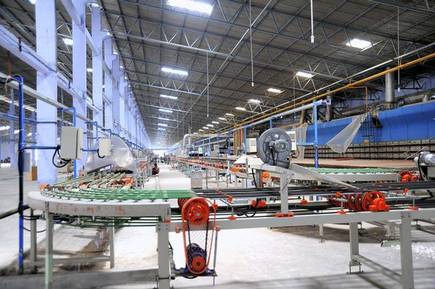
The Indian tile industry has been making strides towards sustainability through eco-friendly and energy-efficient manufacturing practices. With the growing concerns for environmental conservation and sustainability, tile manufacturers in India are increasingly adopting greener technologies, reducing their carbon footprint, and promoting sustainable tile production.
One of the ways the Indian tile industry is promoting sustainable practices is by switching to renewable energy sources. Many tile manufacturers have invested in solar power plants to generate renewable energy, reducing their dependence on non-renewable sources of energy like coal and natural gas. This has not only helped reduce carbon emissions but has also lowered production costs.
Another way that tile manufacturers are promoting sustainability is by reducing water consumption during tile production. Water scarcity is a significant concern in India, and the tile industry is one of the major contributors to water consumption. By implementing water-saving technologies and reusing wastewater, manufacturers can significantly reduce the amount of water used during tile production.
Tile manufacturers are also adopting new technologies to reduce waste and promote sustainable practices. One such approach is using recycled materials like industrial waste, post-consumer waste, and glass to produce tiles. This not only reduces waste but also helps conserve natural resources and energy.
Example Table:
| Sustainable practices in the Indian tile industry | Benefits |
|---|---|
| Adopting renewable energy sources |
|
| Reducing water consumption |
|
| Using recycled materials |
|
“We strongly believe that the Indian tile industry can play a significant role in reducing greenhouse gas emissions, conserving water, and promoting sustainable development. We are committed to adopting sustainable practices and making our operations carbon-neutral in the coming years.” – Tile manufacturer representative
By adopting sustainable practices, the Indian tile industry can not only reduce its environmental impact but also improve the quality of its products. With the growing demand for sustainable and eco-friendly products, tile manufacturers in India who prioritize sustainability can gain a competitive advantage in the marketplace and position themselves as responsible corporate citizens.
Challenges Faced by the Indian Tile Industry
The Indian tile industry is one of the largest in the world, with a wide range of tile manufacturers producing a diverse array of products. However, despite its growth and innovation, the industry is not without its challenges.
Competition
One of the major challenges faced by the Indian tile industry is intense competition. With so many manufacturers producing similar products, it can be difficult for companies to differentiate themselves and stand out in the crowded marketplace. This can lead to price wars and reduced profit margins, making it challenging for smaller players to remain competitive.
Raw Material Availability
Another challenge faced by the Indian tile industry is the availability of raw materials. India is heavily dependent on imports for key raw materials such as feldspar, clay, quartz, and kaolin, making it vulnerable to fluctuations in global commodity prices. This can impact the cost of production and ultimately, the price of Indian tiles in the market.
Regulatory Hurdles
The Indian tile industry is subject to a complex web of regulations and policies, which can create significant hurdles for manufacturers. The industry must adhere to strict environmental regulations, health and safety standards, and labour laws, which can increase the cost of production. Additionally, bureaucratic inefficiencies can lead to delays and red tape, hindering growth and innovation.
Conclusion
Despite these challenges, the Indian tile industry has shown incredible resilience and innovation over the years. Manufacturers have adapted to changing market conditions, embraced new technologies, and invested in sustainable practices to stay competitive. With a rapidly growing domestic market and increasing demand for Indian tiles overseas, the industry is poised for continued growth and success in the years to come.
Future Prospects and Outlook for the Indian Tile Industry
As the Indian economy continues to grow, the Indian Tile Industry is set to benefit from this development. With a thriving construction sector and rising demand for tiles, the industry has a positive outlook for the future.
Emerging Market Trends
The Indian Tile Industry has been witnessing a shift towards premium tiles, fueled by the rise in disposable income and changing consumer preferences. As a result, the demand for high-quality, designer tiles is on the rise.
Additionally, the market is also witnessing a surge in demand for eco-friendly, sustainable tiles. As awareness of environmental issues continues to grow, an increasing number of consumers are looking for sustainable and eco-friendly choices when purchasing tiles. As such, the adoption of sustainable practices within the industry is becoming increasingly important.
Opportunities for Growth
The Indian Tile Industry is expected to see a significant increase in demand, driven by the expansion of the real estate, hospitality, and infrastructure sectors. Additionally, the government’s focus on affordable housing and smart cities is expected to boost the demand for tiles in India.
There are also opportunities for Indian tile manufacturers to expand into international markets. With a competitive advantage in terms of production costs, Indian tile manufacturers can explore new markets and increase their exports, especially in regions such as the Middle East and Africa.
Innovation and Technology
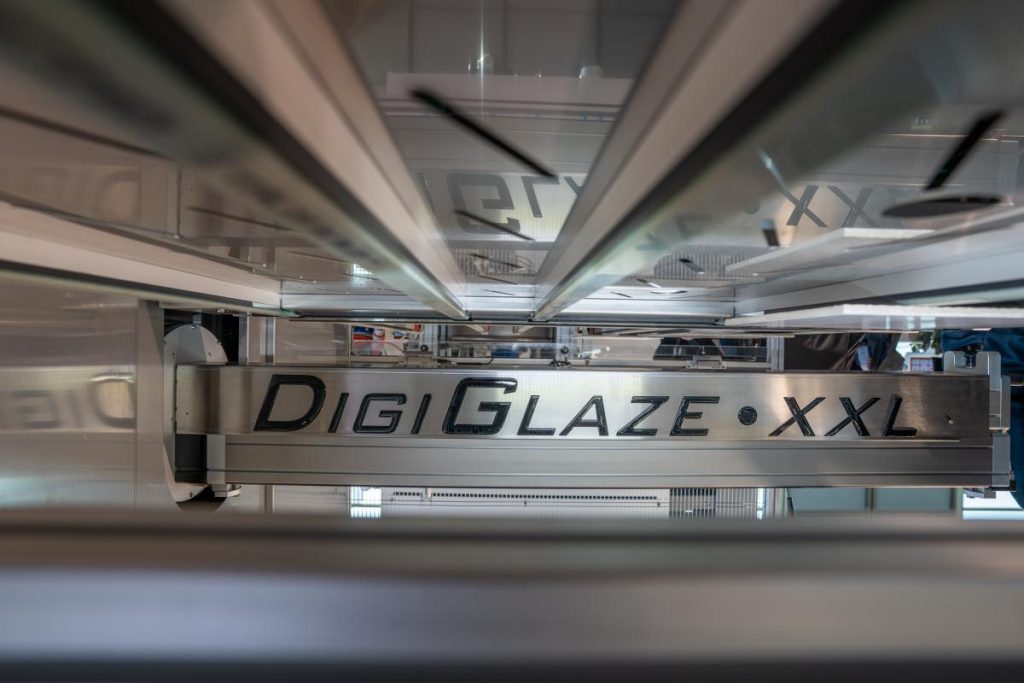
Innovation and technology will continue to play a significant role in the growth and development of the Indian Tile Industry. As the sector continues to evolve, tile manufacturers are investing heavily in research and development to create new, innovative products and technologies.
One of the latest trends in the industry is the use of digital inkjet printing technology, allowing for the creation of intricate designs and patterns on tiles. The adoption of such technologies is expected to grow, as more manufacturers seek to differentiate themselves from competitors and offer unique products to customers.


